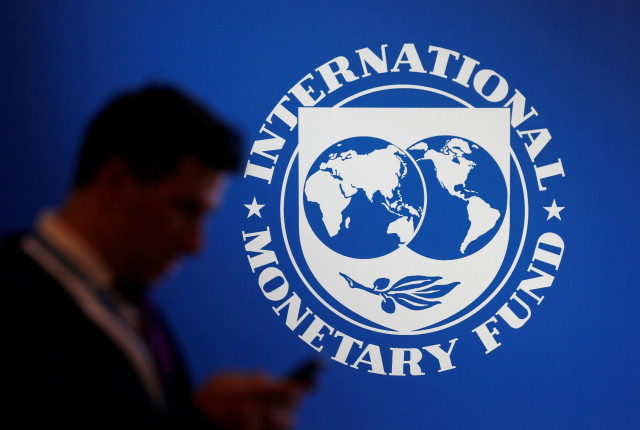IMF tax target for traders missed by 99.99%
Mini-budget looms as Q1FY2024-25 target missed despite taking advances

Pakistan has failed to meet the International Monetary Fund's (IMF) condition to collect Rs10 billion from traders under a new scheme in the first quarter of this fiscal year, managing to collect only 0.001% of the target.
It is rare for an IMF condition to be missed by such a large margin, falling short by 99.99%, reflecting extremely poor performance by Prime Minister Shehbaz Sharif's government and raises questions about the viability of the new $7 billion IMF deal. For the July-September quarter of this fiscal year, "the floor on net tax revenues collected by the Federal Board of Revenue (FBR) from retailers under the Tajir Dost scheme is Rs10 billion," according to the IMF. However, sources said the actual collection was not even Rs1 million, or just 0.001% of the target.
The dismal outcome of the Tajir Dost Scheme highlights the government's leniency toward a class considered close to the ruling party, while salaried individuals are disproportionately burdened by revenue collection efforts. By mid-October, only 575 traders had paid less than Rs1.3 million in taxes, making it likely that the second-quarter target will also be missed. For the first half (July-December), the government must collect Rs23.4 billion from traders under the new scheme, with an annual target of Rs50 billion. This is the second major taxation-related condition that the FBR has missed under the IMF programme, following a failure to meet the first-quarter overall tax collection target by Rs90 billion.
Tax laws authorise the FBR to seize shops and arrest non-compliant traders. However, the FBR has yet to take such actions, as traders have threatened indefinite strikes.
FBR spokesman Muhammad Bakhtiar did not respond to a request for comment.
The IMF has partnered in penalising Pakistan's already overburdened salaried class for the failures of political governments. One of the core conditions of the new IMF programme is to bring traders, exporters, and farmers into the tax system. However, the PML-N-led coalition government is seen as favouring retailers.
The IMF staff report revealed that the lender faced difficult choices, risking its reputation by approving the $7 billion loan despite significant risks. "Reputational risks would arise if the Fund were perceived as treating Pakistan differently from other members that ostensibly enjoy less support," the IMF noted. On the other hand, refusing to proceed with the new programme would also raise reputational concerns, as the coalition government or other members could accuse the Fund of not being even-handed.
The collection under the new scheme is separate from withholding taxes collected from traders under section 236H of the Income Tax Ordinance. Traders have the right to adjust withholding taxes paid under section 236H against their liabilities under the Tajir Dost scheme. Despite the government raising taxes on non-filing retailers under section 236H from 1% to 2.5% to force them into the tax net, this has not had the desired effect. Although there was a 150% increase in tax liability in the budget, the increase in collection under section 236H in the first quarter was only 53%, even after including payments from the previous fiscal year.
The FBR collected Rs6.7 billion from traders in the first quarter of this fiscal year, an increase of Rs2.3 billion, or 53%. Of this amount, Rs3.2 billion was paid at old tax rates. There is some confusion among officials over whether the collection under section 236H is part of the Tajir Dost scheme, but the IMF says otherwise.
"The floor on the net tax revenue from retailers registered under the Tajir Dost scheme is defined as the sum of revenues from the advance tax paid by retailers registered under the Tajir Dost scheme," the IMF stated. Pakistan has committed to generating Rs250 billion through revenue administration measures by including retailers in the tax net via the Tajir Dost scheme, implementing the Compliance Risk Management (CRM) framework, and expanding the Compliance Improvement Plan (CIP). The IMF said these targets will be implemented through quarterly performance targets by setting a floor on tax returns from new filers identified through the CIP and expanding the Tajir Dost scheme to 36 additional cities. The performance of the scheme will be monitored through an IT platform.
The finance minister assured the IMF that "we will pursue the continued implementation of the Compliance Improvement Plan (CIP) and expand the recently launched Tajir Dost scheme to an additional 36 cities, bringing the total number of cities covered by the scheme to 42, to continue our efforts to bring the service sector into the tax net." A Statutory Regulatory Order (SRO) to extend the scheme to these 36 cities will be issued no later than July 2024, with mandatory collection starting in FY25Q1.
While the scheme has been extended to 42 cities, its implementation remains underwhelming. The coalition government had announced the traders' scheme for all dealers, distributors, retailers, manufacturer-cum-retailers, importer-cum-retailers, or anyone involved in the supply chain of goods doing business in 42 cities.
The government has imposed a nominal advance income tax of Rs100 per month on small shops (up to 50 square feet) in commercial areas, makeshift shops, kiosks, or shops measuring no more than 5x3 square feet, instead of charging normal progressive income tax.
The IMF report confirmed that Pakistan would introduce a mini-budget if it misses the agreed quarterly targets by more than 1%. With the FBR already missing the first-quarter target by Rs90 billion, the government will need to implement a mini-budget.



















COMMENTS
Comments are moderated and generally will be posted if they are on-topic and not abusive.
For more information, please see our Comments FAQ